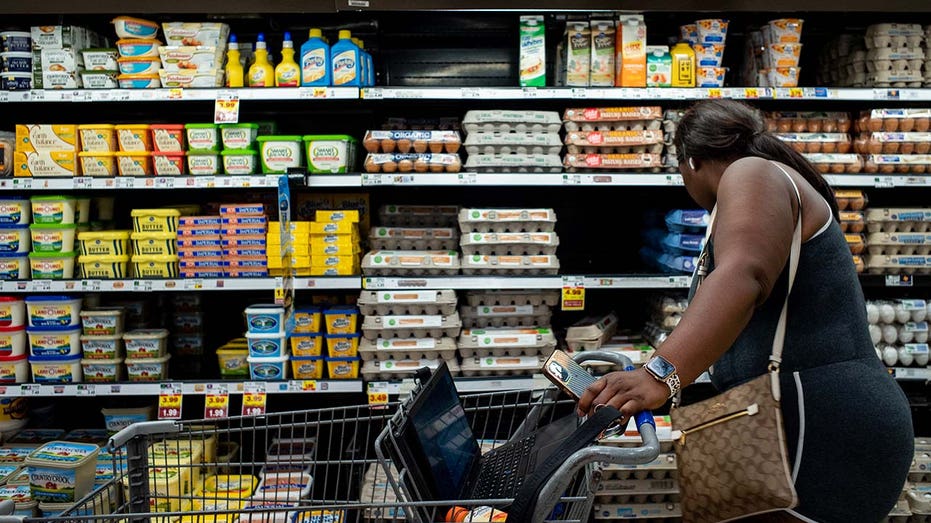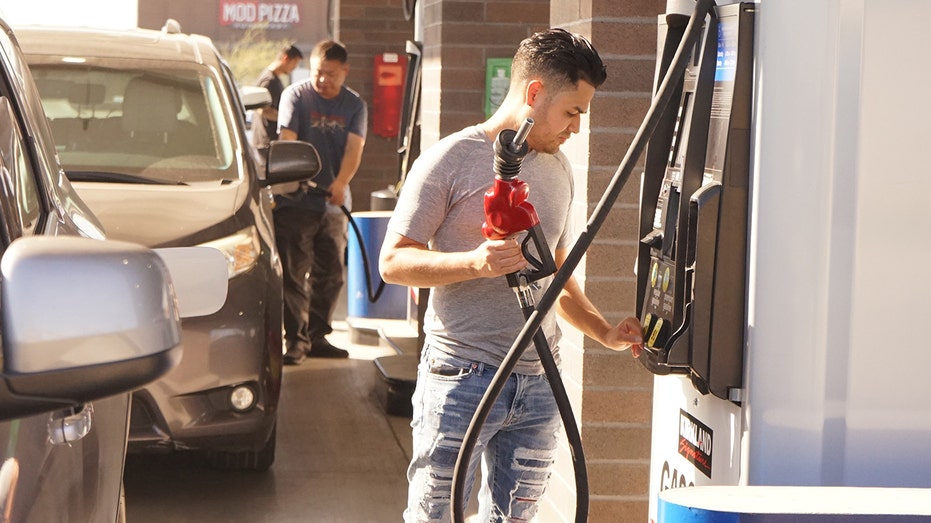Americans increasingly resorting to 'buy now, pay later' loans for necessities like food and fuel
Inflation is driving consumers to rack up more debt to purchase essentials
Shopping expert provides tips on ways to save amid red-hot inflation
Smart shopping expert at ‘TrueTrae.com’ Trae Bodge breaks down her best savings tips and tricks as inflation rates continue to rise on ‘Mornings with Maria.’
Months of persistently elevated inflation are taking a toll on Americans' wallets. Data reveals that more consumers are resorting to credit cards and even "buy now, pay later" (BNPL) loans to cover the expenses of essentials like groceries and gas.
The latest consumer price index reading from the Labor Department shows the price of everyday goods, including fuel, food and rent, rose 8.3% in August from a year ago, affirming inflation remains stubbornly high despite hopes of a slowdown. But the cost of food and gasoline were even higher, up year-over-year 11.4% and 25.6%, respectively.

With wage gains unable to keep up with soaring prices for necessities, consumers are increasingly leaning on credit to cover the rising costs. (Brandon Bell/Getty Images / Getty Images)
With wage gains unable to keep up with soaring prices for necessities, consumers are increasingly leaning on credit to cover the rising costs.
The Federal Reserve Bank of New York reported that credit card debt held by U.S. households surged by 13% on an annualized basis in the second quarter, representing the sharpest climb in over 20 years. A recent study by Wells Fargo found that Americans also rely on credit card rewards to offset everyday expenses.
"When it comes to credit card spending over the past couple of years, we have seen categories shift on where people are spending their money and right now our top categories are grocery and gas," said Krista Phillips, Wells Fargo executive vice president and head of branded cards and markets.

BNPL lender Klarna began allowing customers to make gas purchases in the spring. (Zeng Hui/Xinhua via Getty Images / Getty Images)
But when credit cards are maxed out, some consumers go to BNPL loans as a way to bridge the gap, according to a Harvard study from earlier this year showing that the industry is booming with a particular draw to consumers earning less than $50,000 annually and those with sub-prime credit scores.
AUGUST INFLATION BREAKDOWN: WHERE ARE PRICES HITTING AMERICANS THE HARDEST?
BNPL apps serve as a virtual "layaway" option that parcels out payments into installments as a short-term loan, often used for purchases like concert tickets or exercise equipment to soften the blow of paying for it all upfront.
Now, data from BNPL lenders like Zip, Klarna and Zilch show utilization of their products for basic necessities is soaring.
Food inflation has been rising: John Carney
Economic experts David Bahnsen and John Carney provide insight on responding to record-high inflation on 'Kudlow.'
The New York Times reported that $45.9 billion in BNPL transactions were made in the U.S. last year, which is a three-fold increase from 2020. While food only accounted for 6% of those purchases in 2021, stats provided by the companies indicate significant growth in that arena.
GET FOX BUSINESS ON THE GO BY CLICKING HERE
The outlet noted that Zip had seen a 95% surge in grocery purchases using its app in the past year, and a 64% increase in restaurant purchases.
Meanwhile, Klarna — which began allowing customers to make gas purchases last year — reports that more than 50% of the top 100 items purchased by customers on its app are for grocery or household items, and Zilch says 38% of its total transactions are now for food purchases.
Editor's note: A previous version of this article inaccurately stated that Klarna began allowing customers to make gas purchases in the spring of 2022. Klarna has been working with Chevron since 2021.
FOX Business' Megan Henney contributed to this report.






















